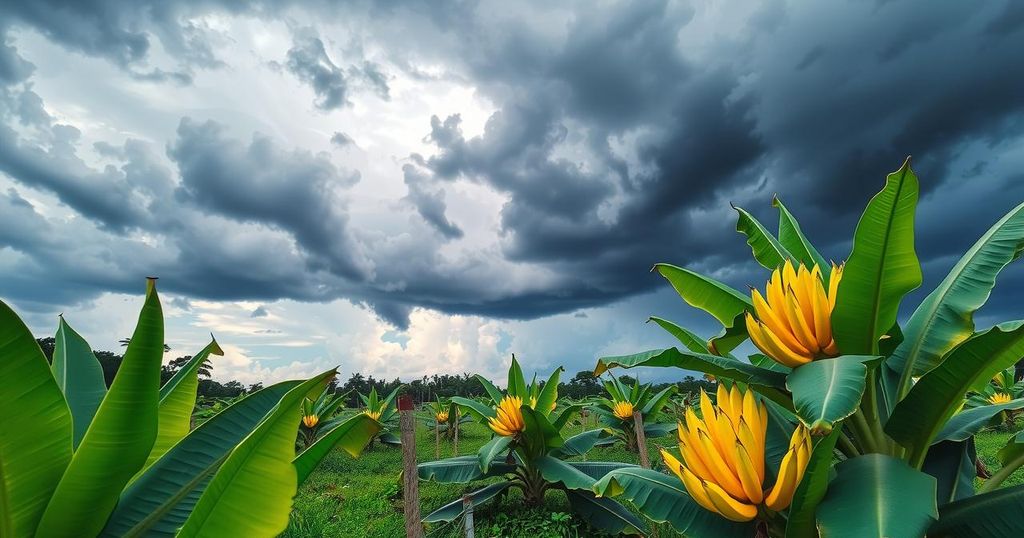Climate Change Poses Serious Threat to Banana Export Industry
A study from the University of Exeter reveals that climate change threatens the banana export industry in Latin America and the Caribbean, predicting 60% of current production regions will face challenges by 2080 unless interventions are made. Key adaptation strategies include expanding irrigation, developing resilient crops, and enhancing support for producers.
A recent study conducted by the University of Exeter has revealed that climate change poses a significant threat to the banana export industry in Latin America and the Caribbean. According to the research published in Nature Food, it is projected that by 2080, 60% of the regions currently cultivating bananas will face challenges in maintaining production without urgent intervention against climate change.
The report highlights that issues such as labor availability and existing infrastructure will hinder efforts to adapt. Most banana production is concentrated in areas surrounding major population centers and ports, which restricts relocation to more conducive regions for cultivation.
The researchers utilized satellite imagery to examine banana production trends, discovering that climate change will diminish optimal growing locations, decrease yield levels, and heighten worker exposure to extreme temperatures. Countries like Colombia and Costa Rica are anticipated to suffer the greatest impact, while Ecuador and certain areas within Brazil are predicted to endure milder effects.
To counter these challenges, the study proposes several adaptation strategies including the expansion of irrigation infrastructure, the development of banana varieties that are tolerant to heat and drought, and the provision of support for banana producers in managing climate-related risks.
In conclusion, the ongoing impact of climate change threatens the banana export industry in Latin America and the Caribbean, as projected losses in production areas and yields could endanger the livelihoods of many. The proposed strategies aim to foster resilience within the industry through infrastructure development, crop innovation, and enhanced support for producers. Immediate action is essential to mitigate the risks posed by climate change.
Original Source: www.freshfruitportal.com




Post Comment